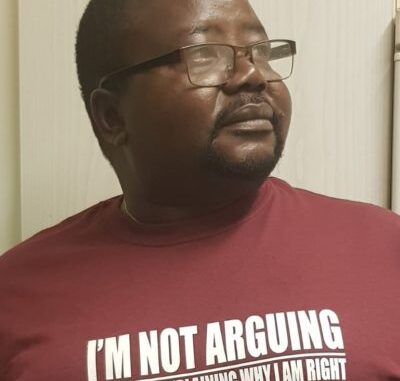
Sierra Leoneans Will Not Forgive or Forget Anyone Who Makes Their Country a Drug Den:
Sierra Leone has a rich history, from slavery and the slave trade as one of the worst indelible marks on the conscience of mankind, to Sierra Leone emerging as a nation of “firsts”.
The country once enjoyed a glorious history as the nation that “benefitted” from the vestiges of the slave trade. The nation became the first in West Africa to have a railway system, a television and radio station, a university, and many more to mark the end of slavery on the threshold of colonial rule.
Unfortunately, Sierra Leone has an unenviable record of negative occurrences too, ranging from coup d’états, a civil war, the Ebola epidemic, mudslide and its perennial membership on the world’s poorest countries index. When you try and balance the good, the bad and the ugly in Sierra Leone, you might be inclined to conclude that the country was a geological mistake of creation.
Sadly, the amount of positive things about our country are easily drowned by our perpetual propensity to attract chaos, misery and suffering. Although some of these like the Ebola, are completely out of our hands, a good percentage is avoidably self-inflicted.
Let us look at the level of corruption that seems to be a permanent feature and fixture on our psyche and national bloodstream. Let us look at the number of times our nation has been dragged into riots, protests and so on, thanks to our differences in governance and politics.
Unfortunately, not many people realise the impact these have on our ability to attract foreign investments. When the conditions prove too unconducive for stability, our chances to develop correspondingly reduce. When a country is perceived as unstable, thanks to the volatility of its political situation, the very few investors who venture to engage do so at very high risks. From airlines, sea going vessels, right down to NGOs and other commercial concerns incur very high insurance costs to operate in Sierra Leone. This is because of its risk status, including the residual effects of the civil war. That is why, among other factors, airline tickets, freight charges and many other commercial activities are charged at astronomically higher costs for Sierra Leone than our neighbouring cousins.
Although we share similar latitudinal lines on the globe, the differences in nautical and air miles between Sierra Leone and Guinea are unremarkable, but the cost of air fare or shipping are eye watering. Is it any wonder why some Sierra Leoneans are forced to take the scenic route via Guinea to Sierra Leone?
Although some of these factors resulting in such disparities are beyond our control, thanks to the international communities’ perception of the country, the recent spate of drug related activities in the country is one scandal too many, and one that we can do without. According to the BBC, 25 January 2025, “Dutch authorities say one of Europe’s most -wanted fugitives has been in Sierra Leone for about six months”. The 33 year -Old Dutch citizen Jos Leijdekkers, fondly known as Bolle Jos, reportedly has a ($ 210,000(£ 168,000) reward, the highest amount of bounty ever offered for a Dutch fugitive. He was found guilty by a Rotterdam court and sentenced in absentia to 24 years in prison in January last year, for smuggling more than seven tonnes of cocaine (BBC, January 2025). A spokesman for the Dutch Public Prosecution Service (OM) said that Los has been living in Sierra Leone for about six months. Now that we have that out of the way, where can I collect the reward for locating him?
Sierra Leone’s association with international drug smuggling appears to be growing insidiously. We can all recall the story of the mystery drug- laden plane that landed on a midnight flight at Lungi International Airport a few years ago. Although the coverage about the Kush pandemic appears to be subsiding, even though it remains an endemic issue in our communities, the recent spate of drug related stories does not in any way boost our country’s image. When Sierra Leone recalled its Ambassador Mr Alimamy Bangura from Guinea on 17 January, after “substances suspected to be cocaine” were found in an impounded Sierra Leone Embassy vehicle, the embarrassment for the country was palpable on all fronts. In a short space of two months, our country was linked to and embroiled in drug related stories on the international and diplomatic circles. So, let us look at the circumstances surrounding these two episodes, so as to calibrate the inherent implications and damage to our country’s profile.
The story of Bolle Jos broke out after the President of Sierra Leone’s wife, Her Excellency Fatima Bio reportedly and unwittingly posted a video on social media of a church service she was attending with her husband. Bolle Jos who was also in attendance was spotted in the video and is reportedly in a relationship with President Bio’s allegedly favourite daughter, Agnes Bio. The official position is one of deniability, that the first family does not know him. Some sceptics would struggle to believe that the First family doesn’t know about Bolle Jos, considering the alleged Romeo and Juliet scenario that has been painted.
But on the other hand, knowing what we know now about Bolle Jos, would the President’s wife had posted the video with a wanted fugitive, if she knew that he was wanted for drug charges and had been residing in Sierra Leone in plain sight? We know about Fatima’s love affair with social media, but would she had engaged in such self-own and knowingly score such a spectacular own goal? I don’t think so, but you be the judge. No matter what you think about the situation, if true that Jos is in a relationship with Agnes Bio, you cannot help but admire his genius thinking of reverse psychology. He sought refuge at one of the last places one would go looking for a fugitive, the heart of the government. Genius. The man was hiding in plain sight while the government had its eyes shut wide open.
Despite the denials from the first family, many see his presence in the congregation as suggestive of being a family member or known by family members. Others question, how can they deny knowledge about him when they attend the same church? Does the priest or clergy man know everyone in their congregation? If a cat sat on a pillar, does it become a caterpillar? Devil’s advocate? No I’m not. Just the other side of the coin to keep the conversation going.
Nevertheless, when you link the coincidence of Jos and embassy Cocaine- gate stories, that is when you begin to struggle to extricate the government or high people in high places from these stories. Both stories are connected to the government or persons in high places of the government. The circumstances of both stories might be different. However, the government, members of the government, or people associated with the government or members of the government are the main denominators of these two differently similar stories. Many critics see these coincidences as too coincidentally coincidental to be a coincidence. This is where it becomes difficult for the government and government officials to do a “Pontius Pilate” of responsibility in this matter. Many arm chair critics believe that the responsibility to clear the air and resolve these matters lie squarely on the President and his government’s shoulders. And President Bio has big shoulders.
What does this mean for Sierra Leone’s image and identity?
The first family have reportedly denied any knowledge of Jos, in the circumstances. The ambassador was never under arrest and has not been proven that he is or was involved in the trafficking. However, in the absence of any proof, any evidence or any judgement, the worrying issue here is the question of PERCEPTION. The international community and the world at large is beginning to see West Africa as a MAJOR transit point for the trafficking of cocaine from Latin America to Europe. As Sierra Leoneans and as a country, a people, a nation, is this a trade that we would like to be associated with? There are certain countries and their citizens who get special scrutiny and double takes at airports, thanks to their countries’ reputation and association with drug trafficking. How many Sierra Leoneans would want to be subjected to rigorous border checks, simply because they carry a Sierra Leonean passport?
This is why, it is imperative that President Bio and his government get to the bottom of these two international scandals and set the records straight. Our citizenry, nationality and passport do not deserve to be tarred with the same brush because of the deeds of the few. It is one thing to be classed as an economic migrant, but it is an entirely different kettle of fish to be treated as a possible and potential drug trafficker. As Sierra Leoneans, we might not mind to work in McDonalds, drive buses, work long hours in hospitals or work as merchants of misery as traffic wardens, but many would not appreciate being stripped searched at airports and border crossings because they hold a Sierra Leonean passport and are seen as potential mules. The ball is squarely in President Bio’s court to save us from such. We don’t want Donald Trump to use the fight against drug trafficking as a false pretext to install a military base in our country.
Over to you Ngor Maada.
Don’t forget to turn off the lights when you leave the room.
Abdulai Mansaray.

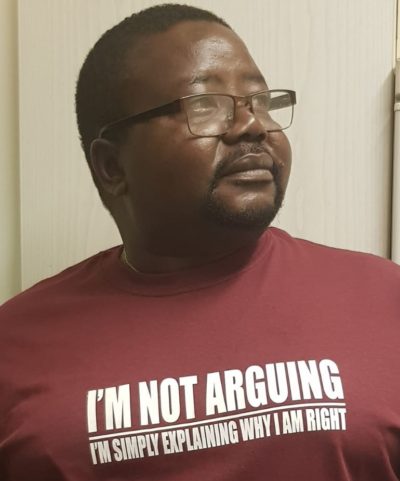
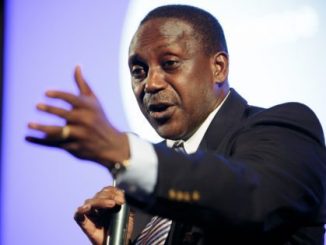
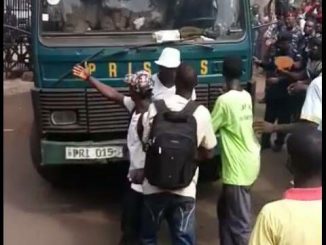
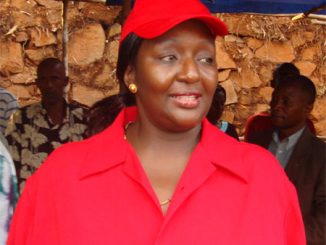
Leave a Reply